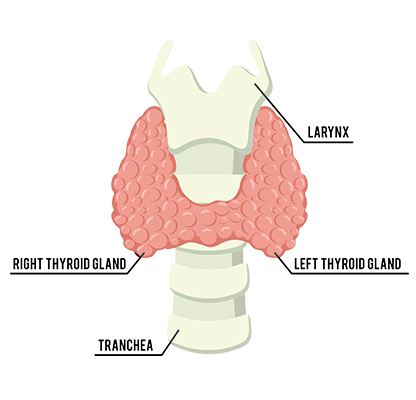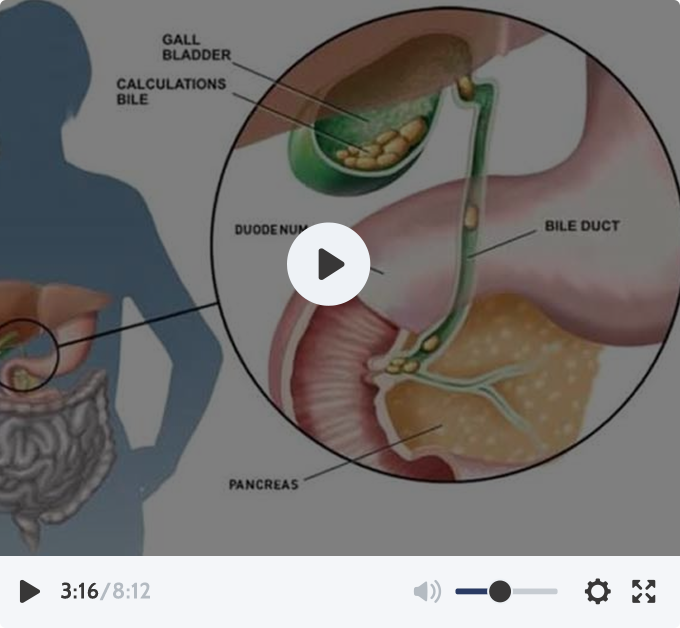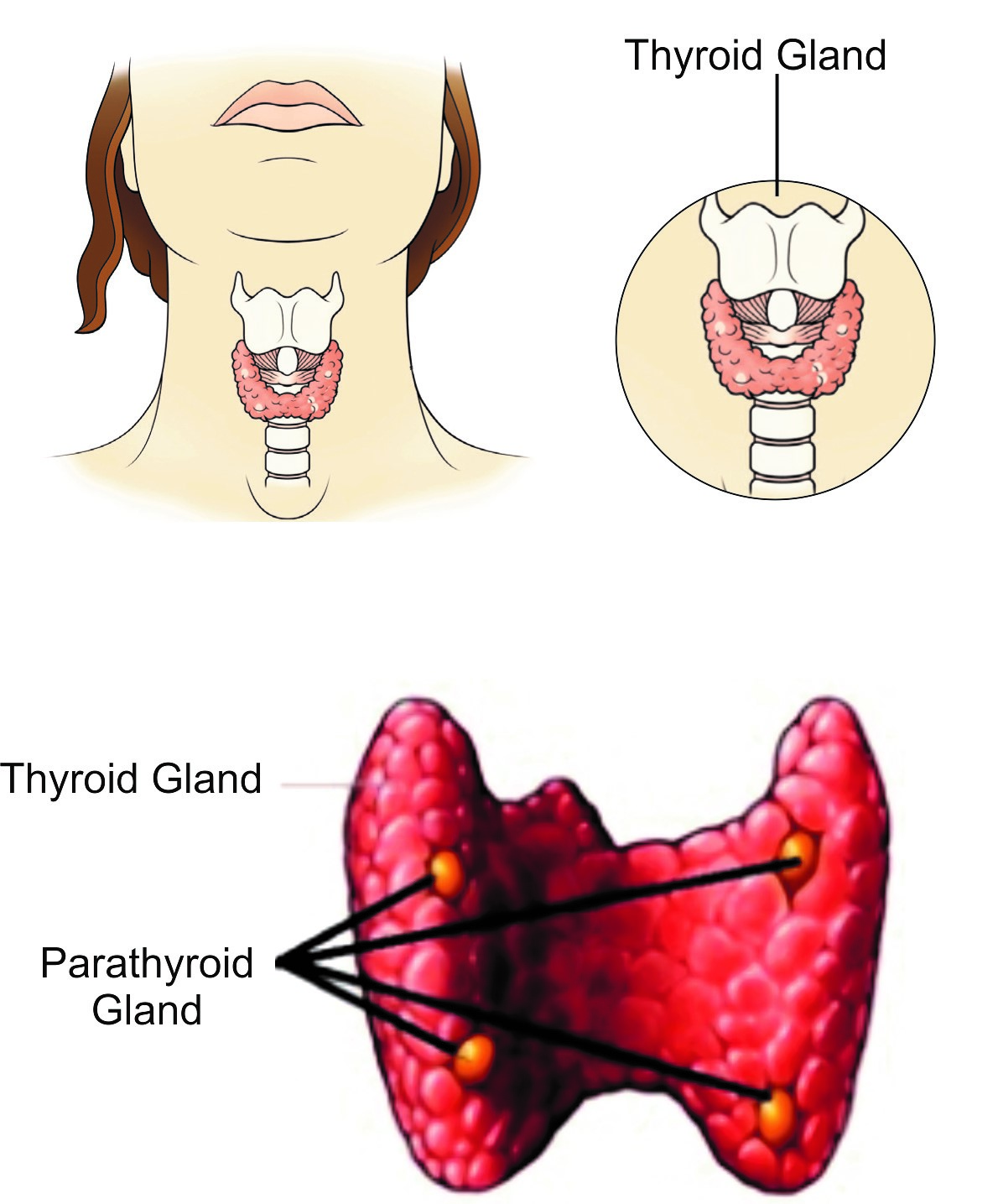The function of the thyroid gland is regulated by a feedback mechanism involving the brain. When thyroid hormone levels are low, the hypothalamus in the brain produces a hormone known as thyrotropin releasing hormone (TRH) that causes the pituitary gland (located at the base of the brain) to release thyroid stimulating hormone (TSH). TSH stimulates the thyroid gland to release more T4.
Since the thyroid gland is controlled by the pituitary gland and hypothalamus, disorders of these tissues can also affect thyroid function and cause thyroid problems.


Thyroid disorders are conditions that affect the thyroid gland, a butterfly-shaped gland in the front of the neck. The thyroid has important roles to regulate numerous metabolic processes throughout the body. Different types of thyroid disorders affect either its structure or function.
There are specific kinds of thyroid disorders that include:
Other symptoms of hyperthyroidism: Increased appetites, tremors, changes in menstrual pattern, weight loss, anxiety, nervousness, increased sweating, muscle fatigue, difficulty falling asleep.
Dietary changes such as consumption of iodized salt and to avoid vegetables such as cabbage are advised.
For hypothyroidism: Hypothyroidism is treated with synthetic hormone tablet that replaces missing thyroid hormone in the body. With careful monitoring, your doctor will adjust your dosage accordingly, and you'll soon be able to return to your normal lifestyle.
For hyperthyroidism: Hyperthyroidism, generally more difficult to treat, requires the normalization of thyroid hormone production. Treatment could involve drug therapy to block hormone production, radioactive iodine treatment that disables the thyroid. The medications gradually reduce symptoms of hyperthyroidism by preventing your thyroid gland from producing excess amounts of hormones.
Antithyroid medications are a common treatment for hyperthyroidism, particularly if you have an ongoing form of hyperthyroidism caused by Graves' disease.
Grave’s disease is the most common cause of hyperthyroidism. It is due to an abnormal immune system response that causes the thyroid gland to produce too much thyroid hormone.
Surgery can be used to remove a large goitre or a hyper functioning nodule within the gland. Surgery is necessary when there is a possibility of thyroid cancer. If the thyroid gland is removed entirely, the individual will need to take synthetic thyroid hormone for life.
Parathyroid glands are small glands of the endocrine system which are located in the neck behind the thyroid.
The parathyroid glands release a hormone called parathyroid hormone. This hormone helps to control the levels of three minerals in the body: calcium, phosphorus and magnesium. Parathyroid hormone has a number of effects in the body:

Improper functioning of the parathyroid glands lead to hyperparathyroidism, which leads to increased calcium levels in the blood.
Nearly all patients with parathyroid problems have symptoms. Sometimes the symptoms are really obvious, like kidney stones, frequent headaches, fatigue, and depression. Sometimes the symptoms are not so obvious, like high blood pressure and the inability to concentrate.
Surgery is the only way to treat parathyroid disease (hyperparathyroidism). There are no medications or pills that work to cure or treat parathyroid problems or high calcium.
Two types of surgeries are available for parathyroid treatment:
Endoscopic technique for parathyroid removal is preferred wherein the surgeon makes a tiny incision to remove the affected gland under sedation. The endoscopic approach has excellent cosmetic results as there are no scars. Also, the recovery is much faster with minimal post-operative pain.
Faster recovery and early return to work and normal activities.
Thyroidectomy is the surgical removal of part or all of the thyroid gland. Depending on the reason for a thyroidectomy, all or part of the thyroid gland will be removed. The various types of thyroidectomy include:
A thyroidectomy may be performed by using a conventional surgical approach or a newer endoscopic method done through very small incisions.
The thyroid gland is located below the Adam's apple in the lower part of the neck and wraps around the windpipe (trachea).
Hypothyroidism is much more common than hyperthyroidism. Hypothyroidism, also called underactive thyroid disease, is a common disorder. With hypothyroidism, your thyroid gland does not make enough thyroid hormone.
Hyperthyroidism is a condition in which the thyroid gland is overactive and makes excessive amounts of thyroid hormone.
Hypothyroidism: Symptoms may include feeling run down, slow, depressed, sluggish, cold, or tired and having dry skin and hair, constipation, muscle cramps, or weight gain. Women may have an increased menstrual flow. Some patients have a swelling in the front of the neck due to thyroid enlargement (a goiter).
Hyperthyroidism: Symptoms may include weight loss, nervousness, irritability, increased perspiration, a racing heart, hand tremors, anxiety, difficulty sleeping, increased bowel movements, fine brittle hair, and muscular weakness—especially in the upper arms and thighs. In Graves’ disease, a bulging of one or both eyes may occur.
Hypothyroidism: In most cases, hypothyroidism is caused by a condition called Hashimoto’s thyroiditis, in which a patient’s immune system attacks and destroys the thyroid. Hypothyroidism can also be caused by treatment of hyperthyroidism or by certain medications, and it may be present from birth.
A problem with the pituitary gland can cause hypothyroidism. Hyperthyroidism: The most common cause is Graves’ disease. Another cause is one or more overactive nodules or lumps in the thyroid, a condition known as toxic nodular or multinodular goiter. You may temporarily have hyperthyroid symptoms if you have thyroiditis, which causes the gland to leak thyroid hormone, or if you take too much thyroid hormone in tablet form.
A physical examination and laboratory tests that measure the amount of thyroid hormone (thyroxine, or T4) and thyroid-stimulating hormone (TSH) in your blood are necessary. Measurement of antibodies in the blood that attack the thyroid (antithyroid antibodies) may help in diagnosing the cause of hypothyroidism or hyperthyroidism.
Two types of surgeries are available for treatment:
Parathyroid glands are small glands of the endocrine system which are located in the neck behind the thyroid.
Improper functioning of the parathyroid glands lead to hyperparathyroidism, which leads to increased calcium levels in the blood.
Primary hyperparathyroidism is caused by a condition that affects one or more parathyroid glands causing exaggerated release of its hormone (parathyroid hormone or PTH). This condition could be a benign tumor of the parathyroid gland called an adenoma, benign enlargement affecting multiple glands (hyperplasia) or very rarely carcinoma (malignant tumor). The cause of those tumors are unknown with certain theories being exposure to radiation of the head and neck area in the past, lithium use and, rarely, a syndrome that runs in the patient’s family.
Adenoma or Carcinoma of parathyroid gland releases high levels of parathyroid hormone (PTH). Through PTH’s action in the bones, the intestines, the kidney, there is an increase in the level of calcium in the body. So the blood is examined for both PTH level and calcium level. Elevated levels of calcium and PTH in the absence of secondary causes such as renal failure are diagnostic of the disease.
Two types of surgeries are available for parathyroid treatment:
The risk of losing your voice is extremely small with parathyroid surgery.
Generally, hospital stays can be between one to two days.